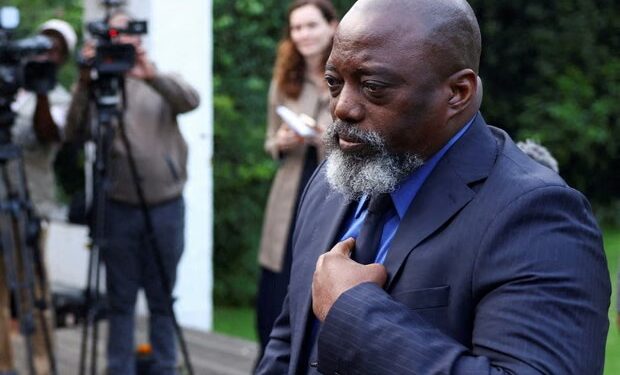A military court in the Democratic Republic of Congo (DRC) has sentenced former President Joseph Kabila to death in absentia, convicting him of war crimes, treason, and crimes against humanity. The verdict is expected to fuel political tensions in a country already facing deep instability.
The charges and ruling
The court in Kinshasa delivered its ruling on 30 September, citing Kabila’s alleged role in murder, torture, sexual assault, armed insurrection, and treason. Judges applied the Military Penal Code, under which the death penalty is mandatory for such offences. Alongside the death sentence, Kabila was ordered to pay damages amounting to $50 billion to the Congolese state and to victims of abuses.
Absence and political undertones
Kabila was neither present at the trial nor represented by legal counsel. His current location remains unclear, though he is widely believed to have been living abroad, primarily in South Africa, since 2023. The verdict comes against the backdrop of heightened political rivalry with his successor, President Félix Tshisekedi. Once political allies through a fragile power-sharing arrangement, the two leaders have since become adversaries, with the government accusing Kabila of backing M23 rebels in eastern Congo.
Domestic and international implications
The ruling carries significant political implications. Critics suggest the trial was politically motivated, while supporters of the decision view it as long-delayed accountability. The enforceability of the sentence remains uncertain, as Congo has not carried out an execution in two decades, and the likelihood of extradition appears minimal. Nevertheless, the ruling is symbolically powerful and could reshape the country’s political dynamics.
Conflict in the East
The verdict comes amid ongoing conflict in eastern DRC, where M23 rebels continue to expand territory despite a U.S.-brokered peace agreement signed earlier this year. Persistent fighting and allegations of foreign backing have already undermined government credibility, and the conviction of Kabila could further destabilise efforts to bring lasting peace to the region.
Looking forward
How the verdict will be implemented remains uncertain. Much will depend on the reaction of Kabila’s allies, the stance of international actors, and whether this judgment strengthens or weakens the government’s grip on power. For now, the conviction has added another layer of uncertainty to a nation already struggling with insecurity, political rivalry, and economic challenges.
Newshub Editorial in Africa – 2025-10-01




Recent Comments